Page 302 of 352 pages « First < 300 301 302 303 304 > Last »
Plate with Pinney family arms
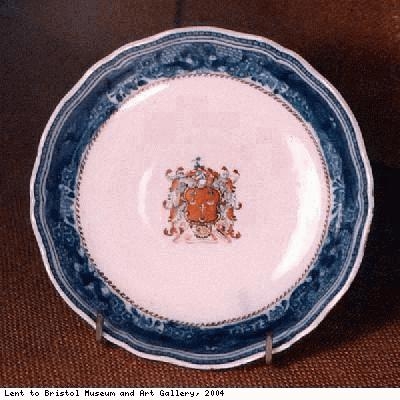
Description:
Porcelain plate with Pinney family arms in centre. John Pinney was a plantation owner and sugar merchant.
Lent from a private collection to Bristol Museums.
Date: unknown
Copyright: Lent to Bristol Museum and Art Gallery
Cashew nut tree (Anacardium occidentale)
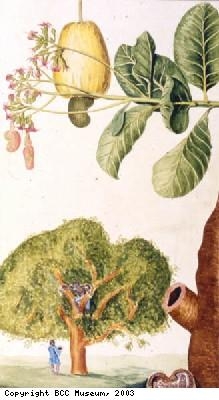
Description:
Illustration of cashew nut tree from the Elegancies of Jamaica , by Rev John Lindsay.
Many of the enslaved Africans had a knowledge of herbal medicine using African plants, and they found medicinal uses for the plants or the Caribbean. For example the tea made from the bark of the cashew nut tree might have been used for venereal diseases, colds, jaundice and pains.
Creator: Rev John Lindsay
Date: 1758 - 1771
Copyright: Copyright BCC Museum
Seaside grape (Coccoloba uvifera)
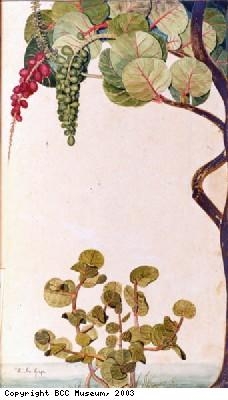
Description:
Illustration of the seaside grape from the Elegancies of Jamaica , by Rev John Lindsay.
The fruit is edible and is used for making wine. Many of the enslaved Africans had a knowledge of herbal medicine using African plants, and they found medicinal uses for the plants or the Caribbean. For example, young leaves from the grape might have been tied across the forehead to relieve headaches.
Creator: Rev John Lindsay
Date: 1758 - 1771
Copyright: Copyright BCC Museum
Cotton (Gossypium purpurascens Poir)
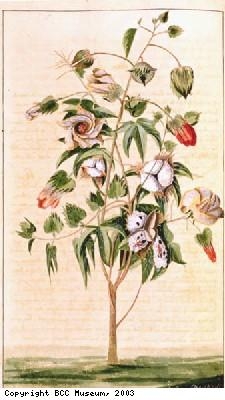
Description:
The cotton plant from the Elegancies of Jamaica , by Rev John Lindsay.
Many of the enslaved Africans had a knowledge of herbal medicine using African plants, and they found medicinal uses for the plants or the Caribbean. For example, the leaves from the cotton plant were steeped to make a tea for colds and fevers.
Creator: Rev John Lindsay
Date: 1758 - 1771
Copyright: Copyright BCC Museum
Papaw fruit (Carica papaya)
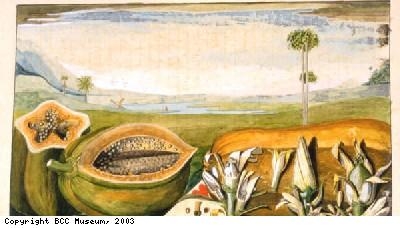
Description:
Illustration of the Papaw fruit from the Elegancies of Jamaica by Rev John Lindsay.
The yellow leaves from this plant might have been made into a tea and used for diabetese.
Creator: Rev John Lindsay
Date: 1758 - 1771
Copyright: Copyright BCC Museum
Colston’s School, Great House, 1824

Description:
Colston’s School, Great House, 1824, by Edward Cashin. Colston was a prominent sugar merchant, charitable donator, and an official on the board of London-based trading company,the Royal African Company.
Creator: Edward Cashin
Date: 1824
Copyright: Copyright BCC Museum
Object ID:Mb 6829
Edward Colston
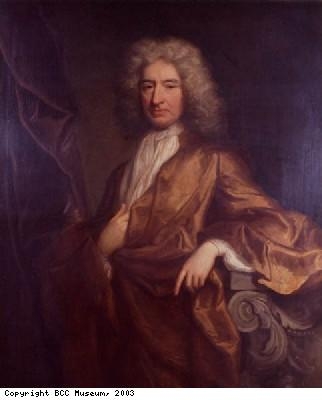
Description:
Portrait of Edward Colston, 1702, by Jonathan Richardson, the elder. Colston was a prominent sugar merchant, charitable donator, and an official on the board of London-based trading company,the Royal African Company.
Creator: Jonathan Richardson, the elder
Date: 1702
Copyright: Copyright Bristol City Council
Object ID:n/a
Hannah More
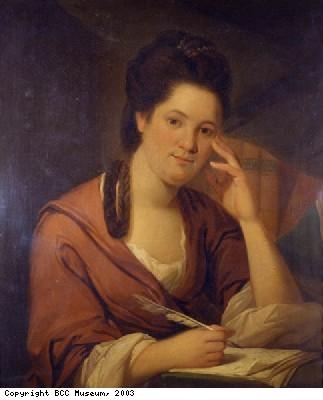
Description:
Portrait of Hannah More , c1780, by Frances Reynolds. Hannah More was an influential Bristolian. Her poems against the slave trade, such as The Sorrows of Yamba, or t he Negro Woman’s Lamentation , were widely read.
The language used to describe people of African descent in the 18th, 19th and 20th centuries is unacceptable in today’s terms. We cannot avoid using this language in its original context. To change the words would impose 20th century attitudes on history.
Creator: Frances Reynolds
Date: c1780
Copyright: Copyright BCC Museum
Object ID:K313
Blaise Castle House
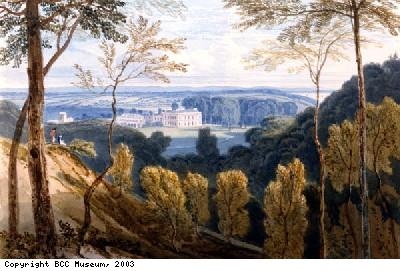
Description:
Painting: Blaise Castle House , Henbury, by Samual Jackson
Creator: Samual Jackson
Copyright: Copyright BCC Museum
Object ID:M3437
Chocolate Wrapper
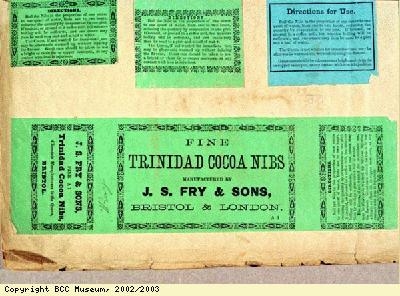
Description:
Chocolate wrapper for Fine Trinidad Cocoa Nibs, JS Fry and Sons.
Cocoa, which was used to make chocolate, was grown on slave planations in the Caribbean and brought to Bristol for processing.
Chocolate was first used as a drink, sweetened with sugar to mask the bitter flavour of the chocolate. Later it was used for making eating chocolate. At this period, most people drank beer, wine or spirits. Water was not safe to drink, tea coffee and chocolate were expensive. Quakers promoted drinking chocolate as an alternative to alcohol.
With thanks to Cabury/Schweppes for the use of this item.
Creator: JS Fry and Sons
Copyright: Copyright BCC Museum
Page 302 of 352 pages « First < 300 301 302 303 304 > Last »

